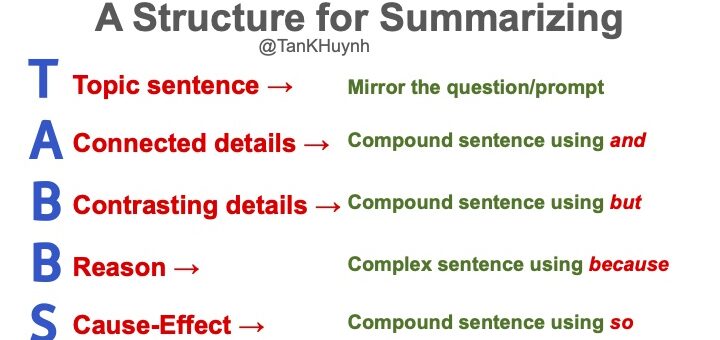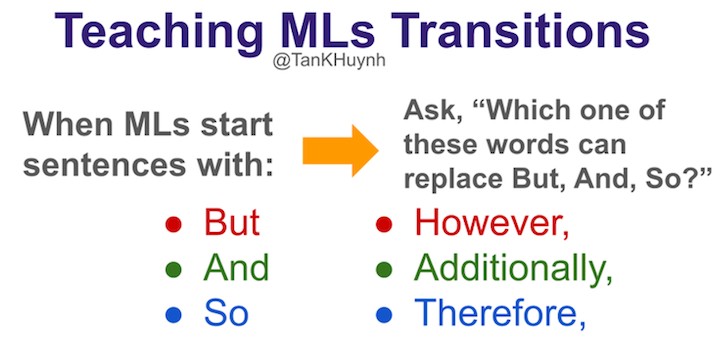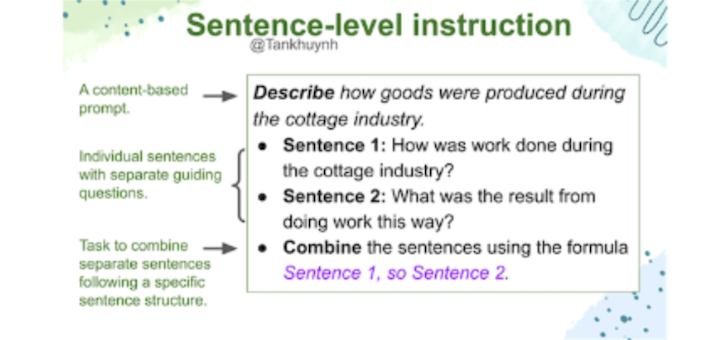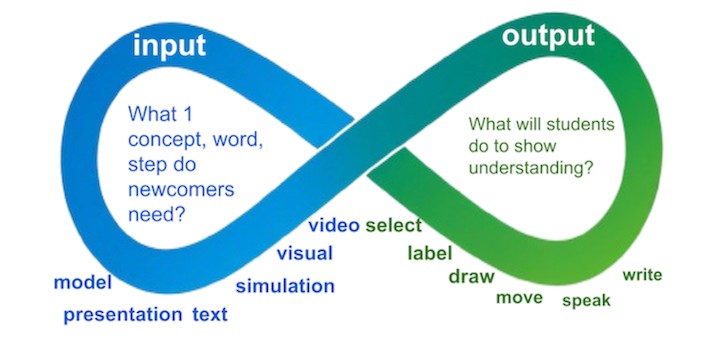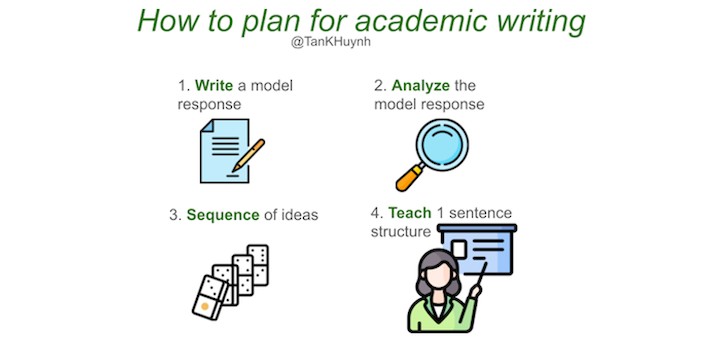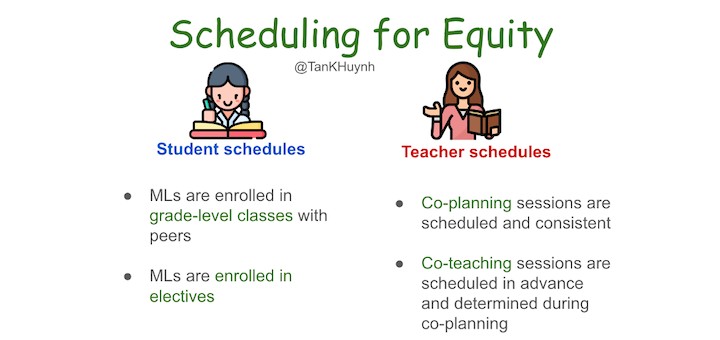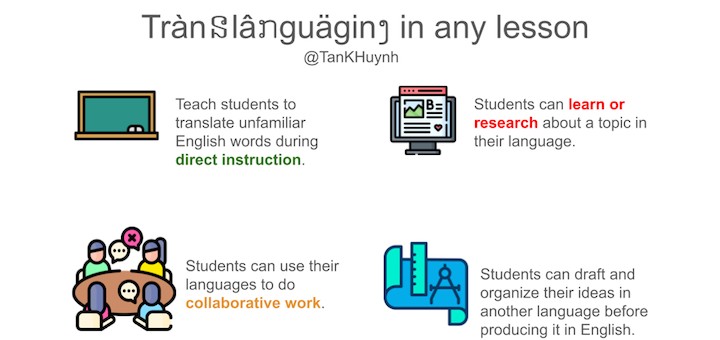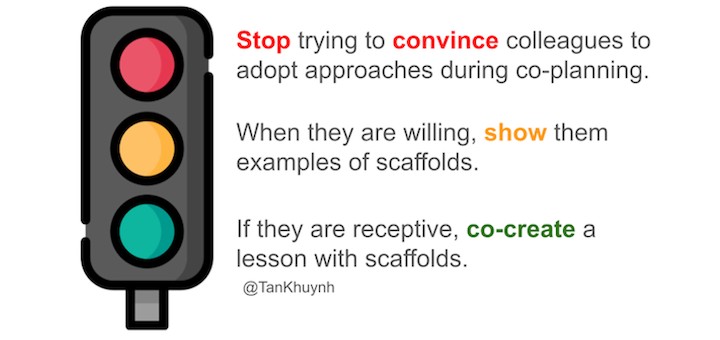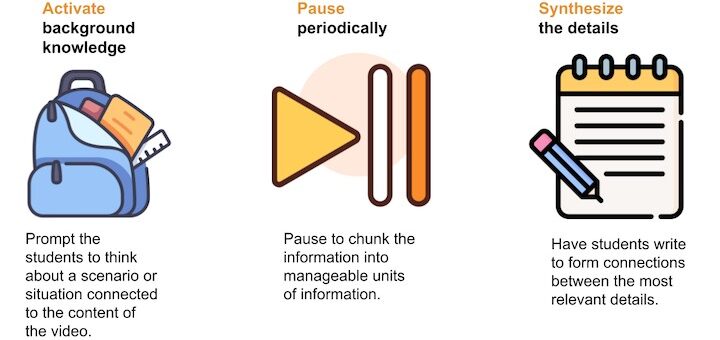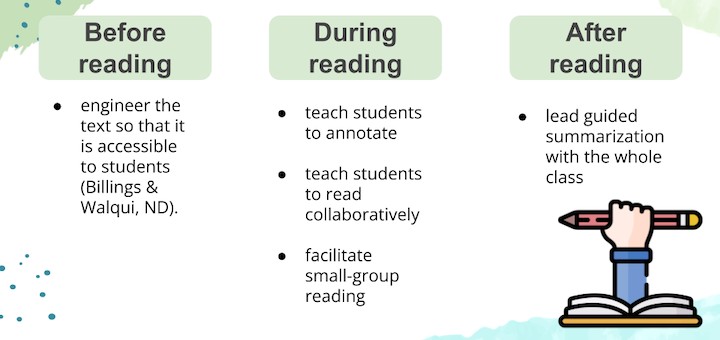Category: The Unstoppable ML Teacher
Educating English Learners with Tan Huynh & Valentina Gonzalez
Language specialist Tan Huynh goes beyond familiar methods of scaffolding for paragraph development to help multilingual students understand how sentences interact for cause and effect, adding details, explanation, and contrast using a TABBS structure he has developed.
Tan Huynh shares an effective, easy-to-implement process to teach multilinguals how to organize their academic writing by building sentence-by-sentence transitions. See how he leads students through the process of applying time-based transitions and subordinating conjunctions.
While many multilingual students gain social language in two years, abstract, highly structured academic language requires much more time. Tan Huynh advocates teaching MLs at the sentence level because it facilitates understanding of content and fosters academic writing skills.
Chunking alone won’t help multilingual learners with the deluge of new content they experience. Tan Huynh shares the Input-Output Loop, a strategy to make chunking more effective by assuring immediate processing time and segmenting content into units students can internalize.
Each subject has its own rules for writing. After years of figuring out how to teach writing to MLs, especially those who are no longer beginners, social studies teacher and language specialist Tan Huynh has refined his process for explicit academic writing instruction.
Equity can be found in many places in the school – on the walls, on bookshelves, and in policies. The best place to check for equity for multilingual learners is by examining teacher and student schedules. Tan Huynh describes the practices that lead to equitable scheduling.
Students’ languages are one of the most effective tools they have to achieve academically, writes language specialist Tan Huynh. When we create space for heritage languages across the learning experience, we help students understand content and more fully express themselves.
The question Tan Huynh hears most often from English language development (ELD) colleagues is “What can we do when our co-teacher is resistant to collaborating?” After many years of failing with persuasion, Tan has developed a “Traffic Light” approach that works much better.
Explainer videos are challenging for multilingual learners because of the dense academic language, the rapid speaking pace and the large amount of content covered. Language specialist Tan Huynh shares strategies he uses to help MLs maximize the ‘learning gold’ videos offer.
To help long-term English learners meet reading comprehension challenges, language specialist Tan Huynh shares strategies to use before reading, during reading, and after reading so that multilinguals have the scaffolding they need to read grade-level texts with understanding.

